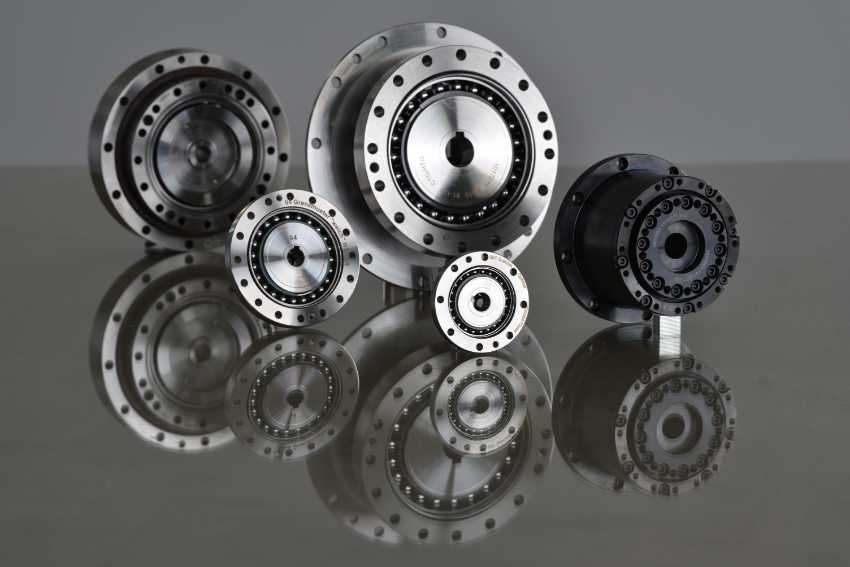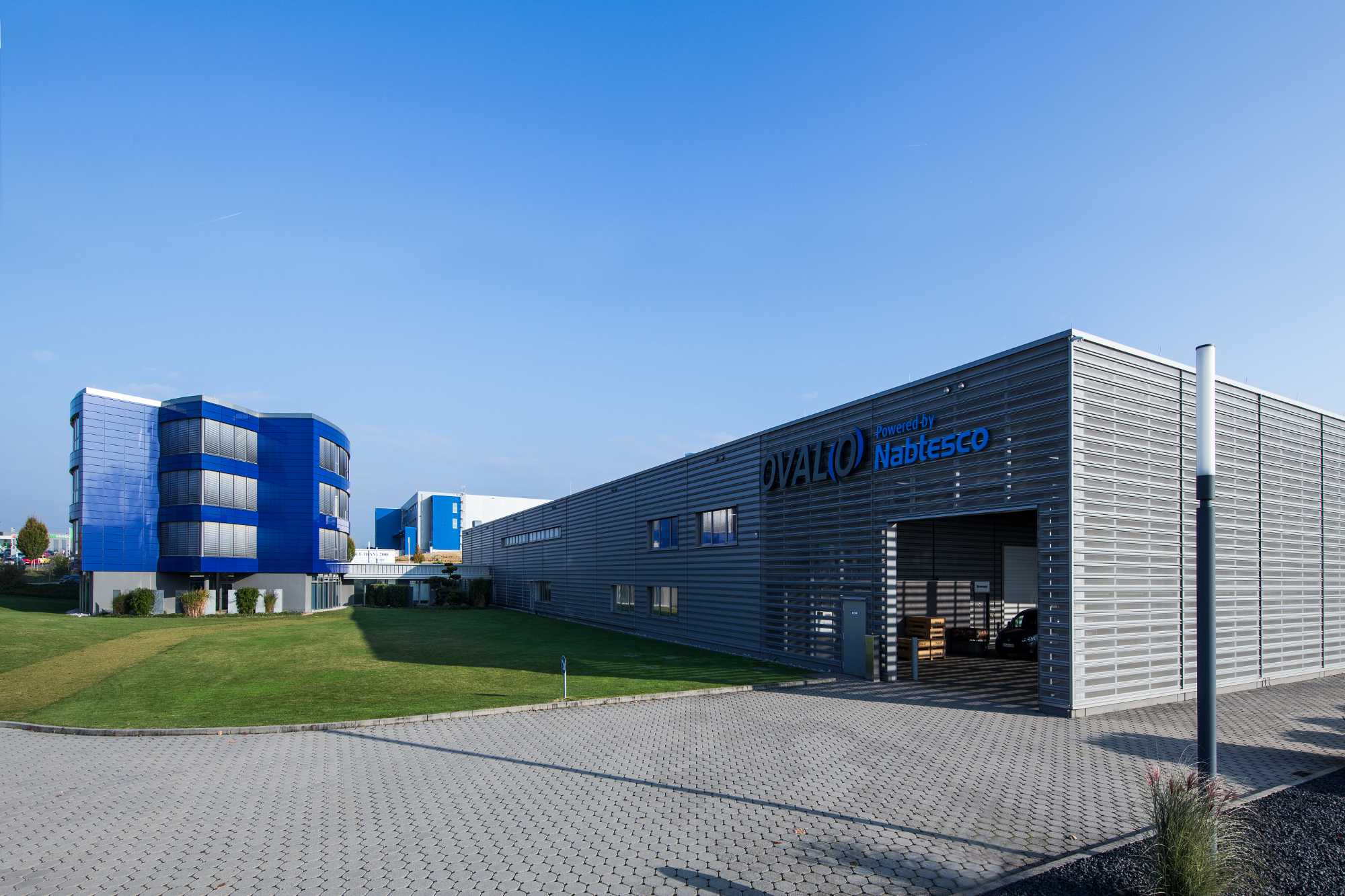Collaborative robots and medical robot applications are on the rise. These so-called “cobots” must be safe, robust and precise enough not to endanger the humans interacting with it. This is where OVALO GmbH comes in: A manufacturer of harmonic drive gearboxes and customized drive systems, OVALO had its start in the automotive industry. It first appeared on the map when it collaborated with Audi to develop a unique motion control technology integrated in the Audi S8 chassis. The high quality standards of the automotive industry, such as 8D reporting and a zero-error policy are indispensable for suppliers of any manufacturers whose product malfunctions could harm human lives. So, it comes to no surprise that OVALO is well on its way to becoming Europe’s number one supplier of gears for cobots and small robots.
A subsidiary of Nabtesco Corporation, OVALO is based in Limburg an der Lahn, Germany. Its production facilities and its first-grade R&D department have been located there ever since the business was founded in 2006.
Interview with Dirk Vogel, Head of Sales and Marketing at OVALO.
Easy Engineering: What are the main areas of activity of the company?
Dirk Vogel: Our focus is on developing gearboxes and drive systems in robotics, particularly cobots and small robots, as well as medical robot applications. We develop and manufacture strain wave gears, also known as harmonic drive gears. This type of gear is the standard choice of gear in small robots. However, in the majority of cases, the industries in question have particular requirements calling for customized solutions. Rather than offering a products catalog and expecting our customers to order off-the-shelf, we act as a partner in finding a perfect customized solution for their unique robotic innovations. They may ask us to provide an expert’s view on gear-related construction issues and to help choose the right customization. Other customers approach us looking for a partner who may take care of the entire development and manufacturing of an actuator. They can keep focusing on the greater picture of construction without having to concern themselves with the issue of gears. This is particularly useful to young cobot start-ups whose core competence is not in engineering, not to mention gear development.
E.E: What is new about your products and services?
D.V: Strain wave gearing as a concept has existed since 1957 when the US American engineer C.W. Musser applied for a patent for what he called a harmonic drive. The company that first manufactured these gears in series should later play a key part in the founding of OVALO. It is a very straightforward type of mechanical gear system that consists of only three parts: a flexible spline with external teeth, which is deformed by a rotating elliptical plug so that it can engage with the internal teeth of an outer spline. This concept has numerous advantages over traditional gearing such as planetary gears. Strain wave gears have no backlash, excellent repeatability, and high torque capacity. They also require no maintenance during their lifetime.

However, choosing the most effective gearing size and customizing its application is not easy. In today’s rapidly changing engineering environment, we aim to be active partners and enablers on our customers’ innovative journey. We are currently working on making our gearboxes more intelligent. Advances in sensor technology allow us to measure performance indicators such as speed, pressure or erosion. Direct feedback may then be sent to a control unit. This will help improve the overall reliability and precision of the machine. For example, it would allow parts to run beyond their estimated lifetime, as failure would be detected automatically.
E.E: What are the ranges of your products?
D.V: We produce strain wave gears in numerous versions and sizes, executed as a hat type gear or cup type gear with an optional central hollow shaft. You may as well choose a ready-to-install gear set solution including output bearings or complete actuator systems. As I said above, most of our products are customized. We are happy to advise our customers on the integration of our gears, as well as on the selection of the associated features such as control units, brakes, sensors, e-motors etc. Of course, we also support customers during the integration of our gearboxes.
E.E: What is the state of the cobot market?
D.V: The cobot market has been growing rapidly. This is part of a larger trend towards industrial automation. It is triggered by a shortage of skilled laborers, the high cost of human labor, as well as sheer practicability. Advances in fields such as medical, sensor and information technology are also creating potential for a well of innovations in engineering. Cobots and small robots currently still make up only a small part of the demand but a growing number of innovators are entering the market as we speak. We are excited to help them make their visions come to life.

Dirk Vogel, Head of Sales and Marketing at OVALO.
E.E: What can you tell us about market trends?
D.V: Robotic solutions are getting accepted more and more in society, starting to play an increasingly important role in various production areas. They have stopped being constrained to classical manufacturing facilities and, for example, can be found in health care, gastronomy and the education industry. Meanwhile, industrial robots are getting increasingly more accessible to medium-sized companies. This market is still evolving. There may be countless other possible applications popping up in the near future.
E.E: What are the most innovative products and services marketed?
D.V: The most innovative products are undoubtedly intelligent systems that include self-learning mechanisms through networking and artificial intelligence. We work in a close partnership with our subsidiary, adcos GmbH, to provide high-quality solutions to customers active in this field. Adcos develops advanced software and hardware solutions for of mechatronic systems.
E.E: What estimations do you have to 2024?
D.V: The global crises have unfortunately led to a great deal of uncertainty, which is why companies are often reluctant to make new investments. Nevertheless, automation is on the rise and the demand for robotic solutions will increase accordingly.

